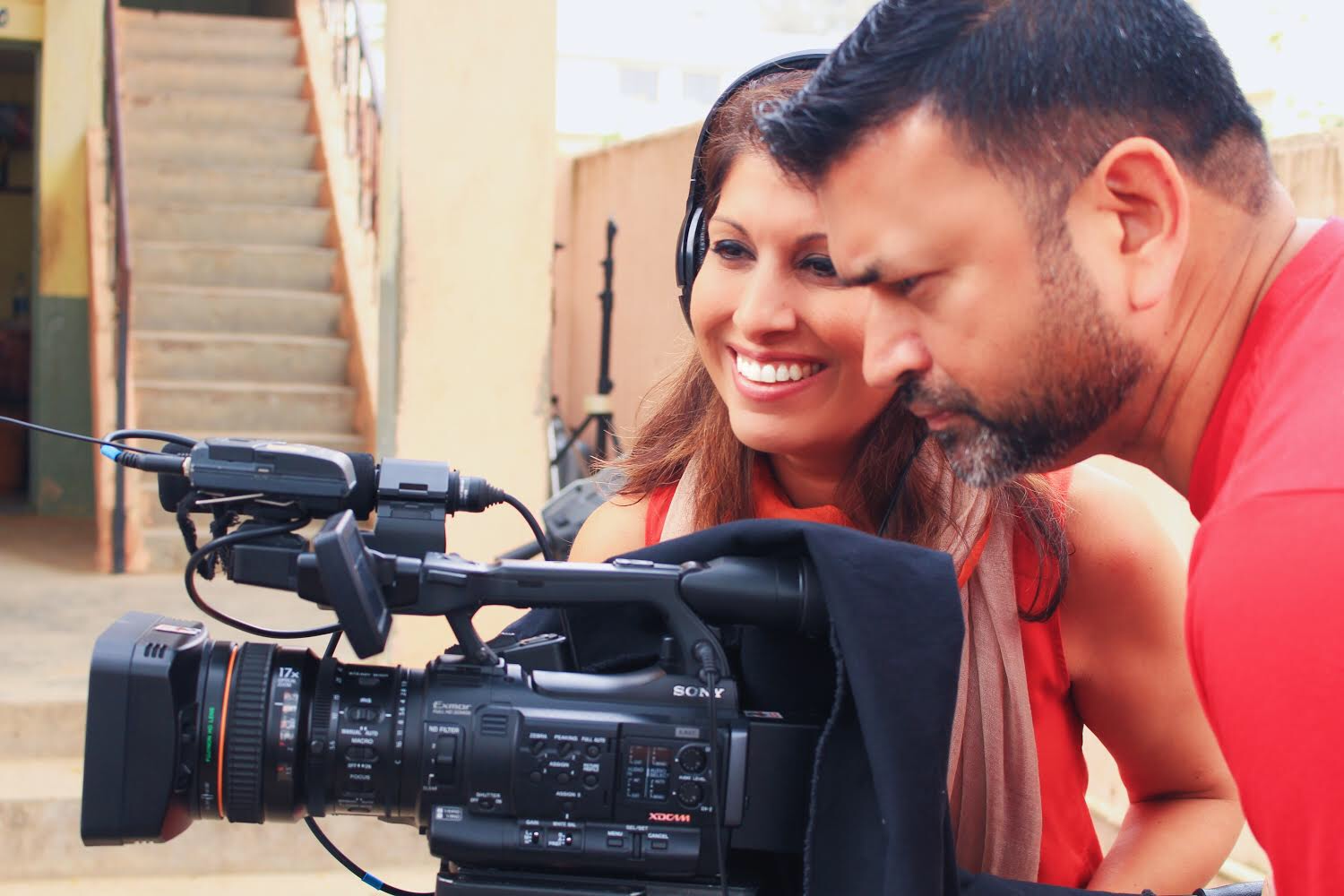
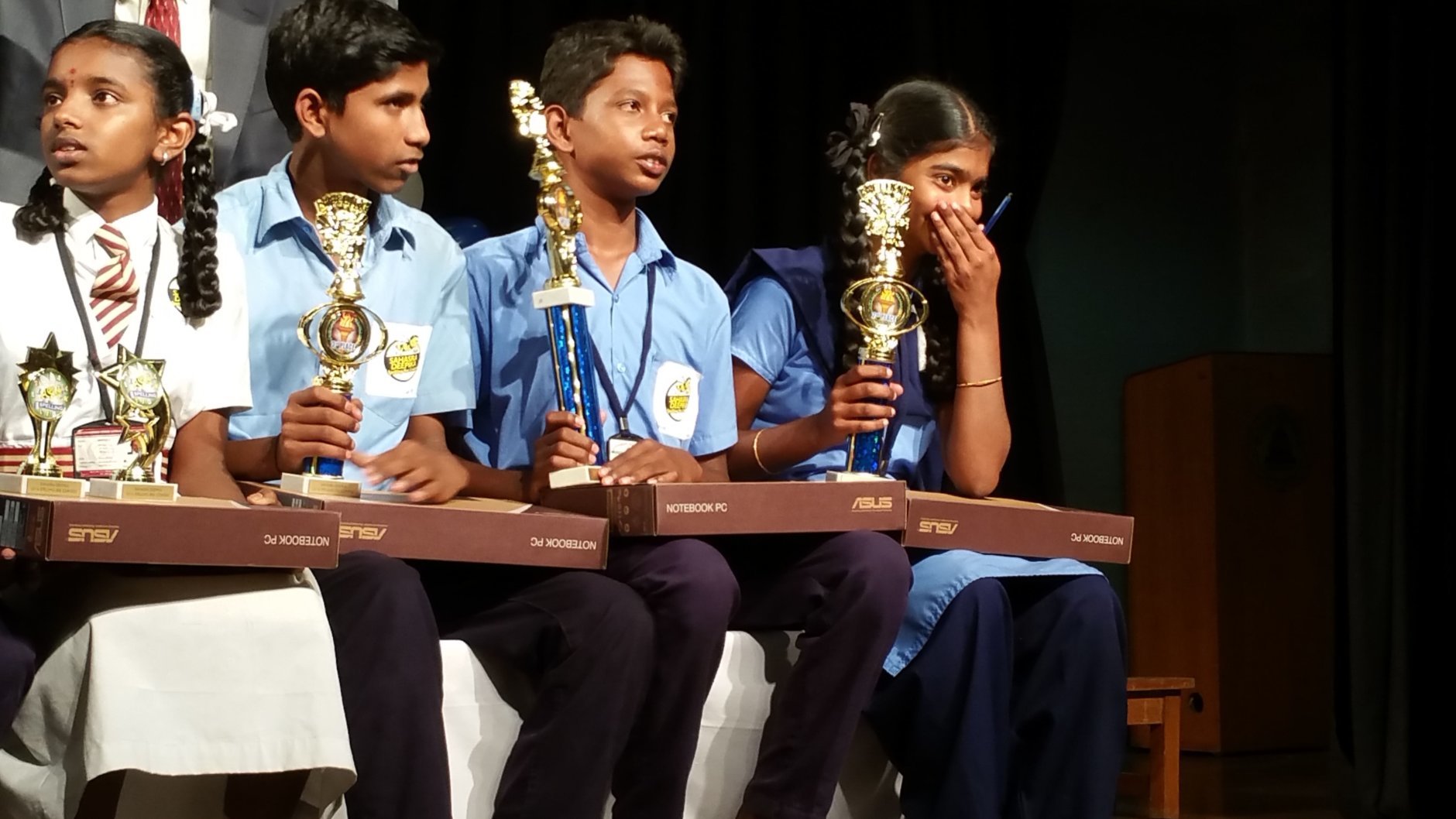
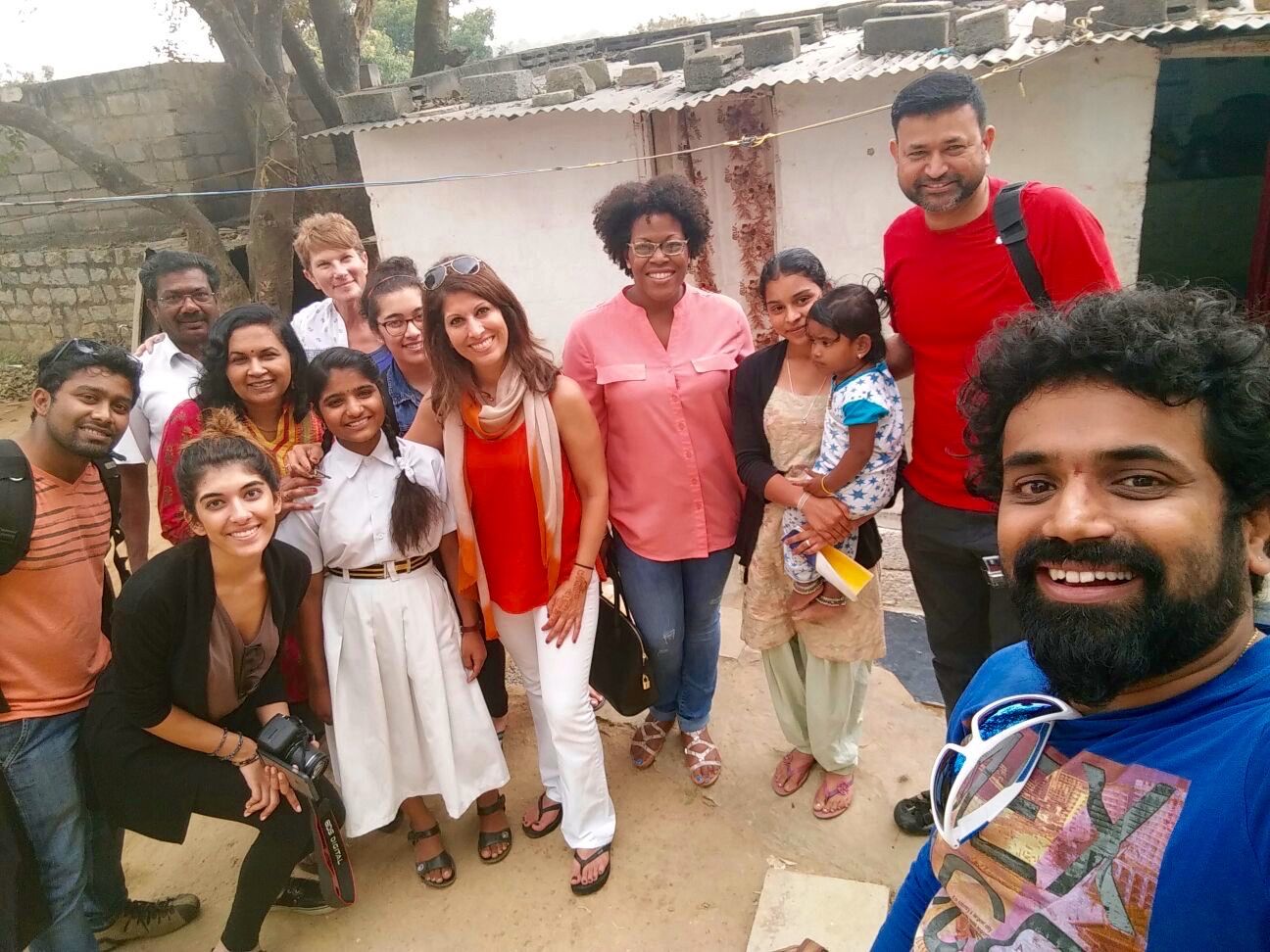
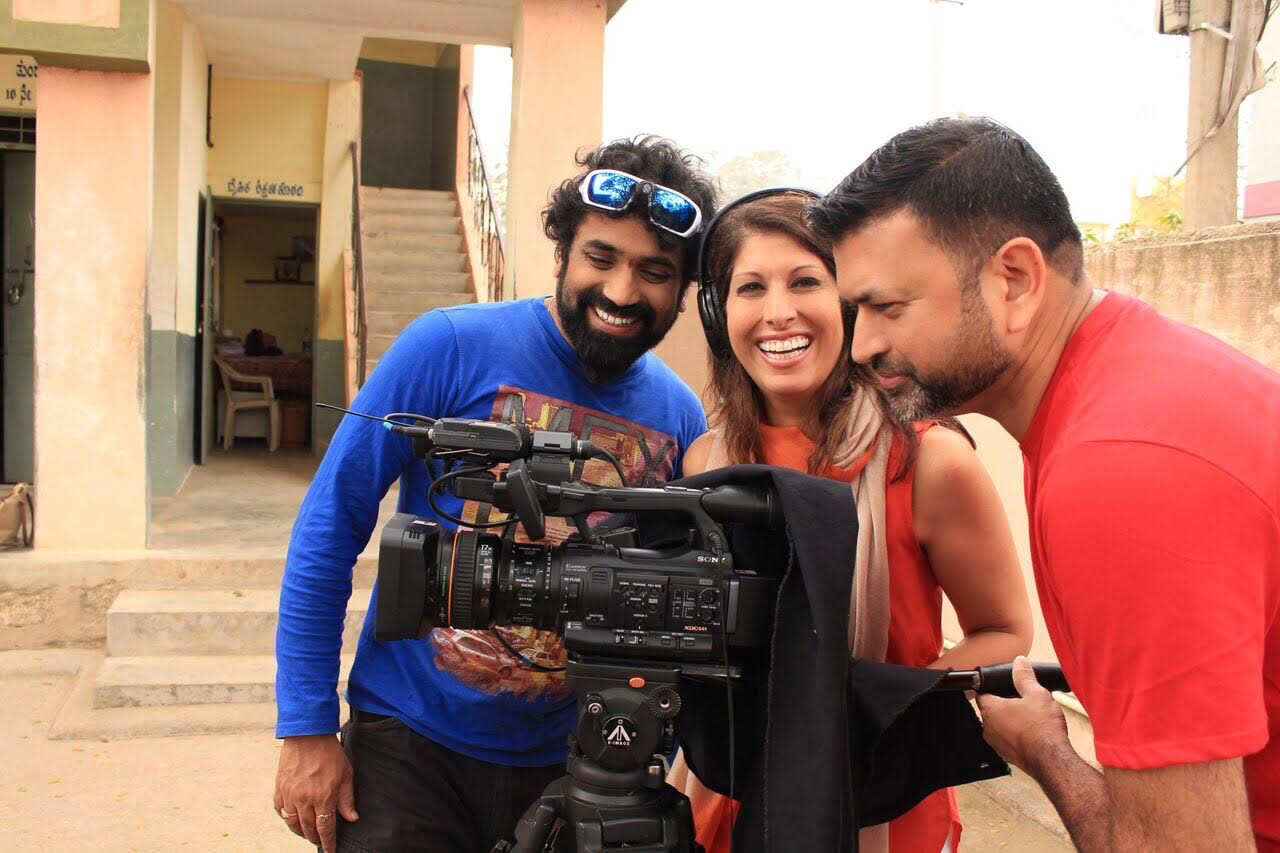
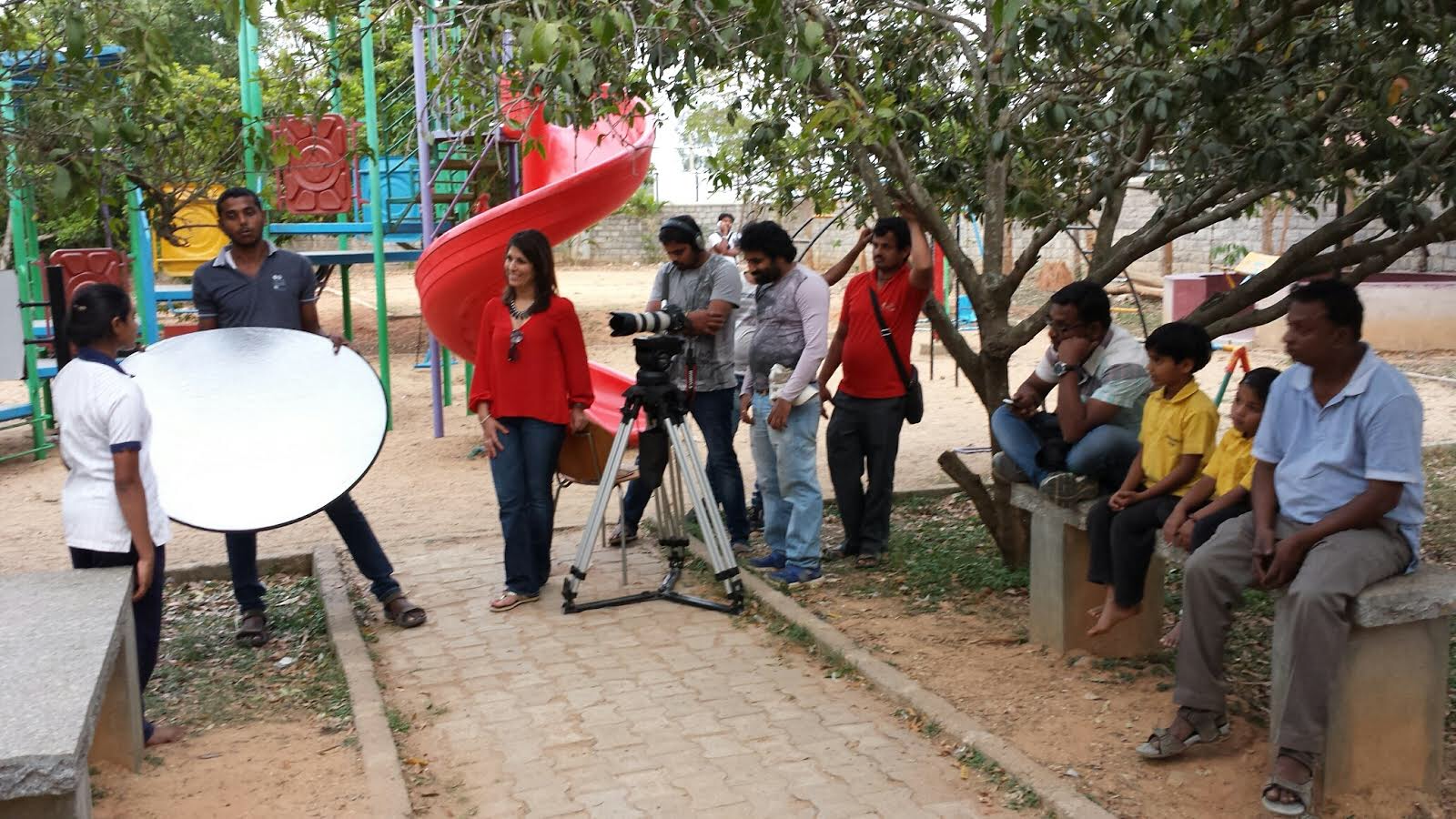
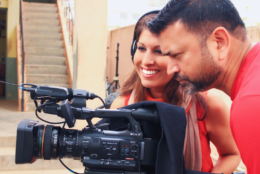
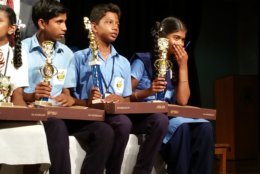
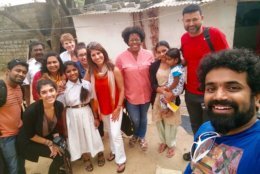
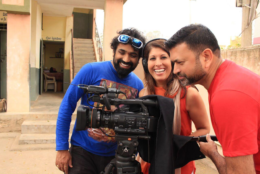
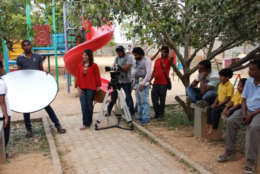
WASHINGTON — D-O-C-U-M-E-N-T-A-R-Y.
Can I have the definition? It’s a noun for a movie that provides a factual record or report.
Can I have it in a sentence please? Monika Samtani just directed a fascinating documentary.
Can I have the place of origin please? Bangalore, India by way of the United States.
That’s how a spelling bee competition might play out for the inspirational new documentary “Bee the Future,” which screens this weekend as part of the D.C. South Asian Film Festival at 11 a.m. Sunday at the Parilla Performing Arts Center at Montgomery College in Rockville.
“It’s an inspiring and uplifting film about children who see a spelling bee as not just a competition but a ticket out of their current situation in poverty,” Samtani told WTOP. “It’s like winning the lottery ticket. Should they win, it doesn’t just mean that they get a college scholarship, this means the success of potentially their family and even back to their village.”
You’ll recognize Samtani from her days reporting traffic every morning on WUSA-9. So how exactly did she hear about this spelling bee and decide to make a documentary about it?
“I’ve been very fortunate to work with a local family in Virginia, who has run a school for girls for now 20 years,” Samtani said. “I found out about an outreach program that they do, which is this spelling bee. So I thought, how cool would it be to go back, take some filmmakers from Washington, combine it with local crew from Bangalore and do a story about a spelling bee?”
The family is that of Sarva Rajendra, who also serves as executive producer of the film.
“My family began the Sahasra Deepika Foundation, which is based in Bangalore,” Rajendra said. “My father about 10 years ago started the spelling bee program because there’s a lot of kids that are in government schools and don’t really get a chance to learn English, but English seems to be the great divider in terms of opportunities. … So, he wanted to inspire them.”
Over the past decade, the spelling bee has grown into quite the phenomenon.
“We’re celebrating our 10th anniversary spelling bee in January,” Rajendra said. “We reach about 2,500 kids every year. It has proved to be a really inspirational and also a really fun way to expand their language skills, get a chance to compete and show what they can do and also bring some pride to their school and to their families as well.”
The real joy of the film is getting to know the kids and their families en route to the event.
“What I loved as a filmmaker is taking a step back and starting with the journey,” Samtani said. “We go back and we highlight some of the students that are going to be in the spelling bee. Now, we did not know obviously who was going to win and we took our chances, because when you go to these kinds of villages, you never know if they’ll even show up.”
Not only do we get interviews inside the kids’ homes, we also see them studying in school.
“They’re getting up at 5 in the morning going through a thousand words for hours in the morning, then coming back after school and practicing again in the evening,” Samtani said. “This means everything. Imagine the idea that this can get me out! So, we see the journey.”
Turns out, they lucked out by interviewing the eventual winner.
“One of the students that we interview, we were so surprised that student won the spelling bee!” Samtani said. “We filmed this student days before the actual spelling bee, so when that happened, imagine the surprise and the joy that we felt seeing that unfold! It was amazing.”
As for the spelling bee itself, the word battle makes for a thrilling climax.
“They ran out of words!” Samtani said. “They had 1,000 words and they ran out of words, so the judges had to start writing words and placing them on the stage. … You get so engrossed in the tension that’s now created with the idea that there’s two people left on stage, they run out words, what is going to happen and who is going to win? And it ends up being those two best friends that we got on film before we knew anything about who was going to win.”
The cameras were also rolling as the winner’s parents open the door to hear the good news.
“We followed the students back home [and] saw the reaction of the parents,” Samtani said. “I don’t want to give the story away, but the winner got an opportunity to then come back to Washington and attend the National Spelling Bee here! It’s completely changed their life.”
Find out more on the festival website. Hear our full conversation with Samtani and Rajendra below:






